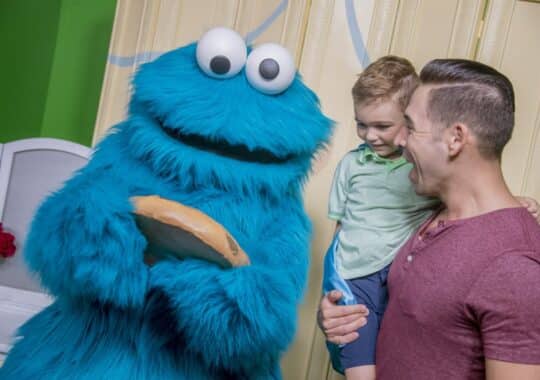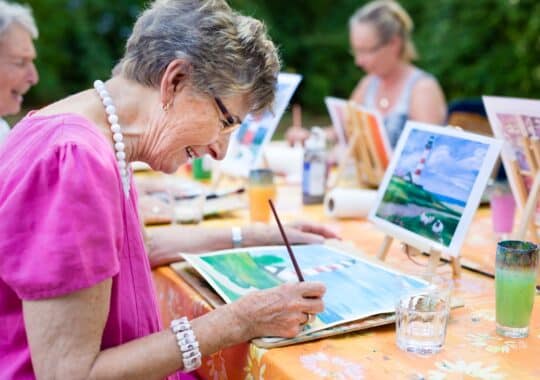|
Getting your Trinity Audio player ready...
|
The digital age has revolutionized not just the way we work and communicate, but also how we play and interact with others around the globe. Online gaming is no longer a solitary pastime for the stereotyped antisocial gamer. Instead, it has blossomed into a vibrant hub of social interaction, where friendships are forged and communities are built. From the adrenaline-pumping thrills of competitive play to the strategic cooperation required in team-based games, these virtual environments cater to a rich variety of personal connections. Keep reading to explore how online gaming is indeed a social catalyst in the modern world.
Top Latest Orlando Hotel Offers
- Ramada Plaza Resort International Drive : Get 60% Off and Experience the Magic of Halloween!
- Holiday Inn Express South Lake Buena Vista > Experience the ultimate family getaway.
- Rosen Inn Lake Buena Vista > Comfortable Accommodations Await You in Orlando.
- Rosen Inn Pointe Orlando > Everything You Need – Without Resort Fees!
- Rosen Inn International Drive > Centrally located on the bustling International Drive.
- Hampton Inn Kissimmee North - Just off US-441, we are within two miles of several restaurants and shops at The Crosslands and Loop West.
- Best Western Plus Universal Studios - Located directly across from Universal Studios®, Harry Potter®, the Island of Adventure®.

The Rise of Social Interaction in Online Gaming Communities
Gaming has evolved from a niche interest to a cultural mainstay with a strong social backbone. Multiplayer games have created spaces where players connect, share experiences, and form communities that extend beyond gameplay. Streaming services have amplified this communal experience, allowing viewers to engage with favorite streamers and each other, reinforcing a sense of belonging.
Game developers have responded by integrating social features like in-game chat, friend lists, and clan systems, which deepen player connections. The popularity of social sweepstakes casino games also highlights this shift, blending casual gaming with opportunities to compete and network, bringing a new level of engagement to social gaming.
Bridging Cultural Gaps Through Multiplayer Experiences
Online multiplayer gaming is a platform that fosters cross-cultural communication and understanding among people from different backgrounds. It often includes localization features, dismantling language barriers and allowing players to learn about diverse cultures in a shared environment. This virtual experience reduces real-world prejudices and promotes global camaraderie.
Role-playing games (RPGs) allow players to assume the identities of characters from different backgrounds, leading to deeper understanding and empathy. These lessons can be applied in real-life interactions. International tournaments and global leaderboards further enhance the gaming experience by encouraging friendly competition that transcends borders, creating international gaming communities united by their love for the game rather than geographic location or nationality.
The Role of Online Gaming Events in Fostering Relationships
Online gaming events and competitions provide gamers with opportunities to bond and strengthen their community. These events, such as gaming marathons, charity streams, and themed holiday celebrations, create shared experiences and foster a sense of achievement and camaraderie. Virtual events also encourage communities to rally around causes or goals, such as raising funds for charitable organizations.
This not only strengthens existing relationships but also invites newcomers, expanding the gaming community’s impact and outreach. Gamers often receive in-game rewards and the gratification of contributing to a greater good. Gaming conventions and e-sports tournaments often have extensive online components, allowing remote participation. These events encourage collaboration, planning, and leadership skills, fostering organically-growing friendships as players are brought together by shared duties and responsibilities in an engaging environment.
Cooperative Play: Promoting Teamwork and Communication Skills
Online games foster cooperative play, requiring communication and teamwork skills. Players learn to strategize and cooperate, translating virtual achievements into tangible teamwork capabilities. Voice chat in games improves interpersonal skills by allowing players to express their thoughts clearly and actively listen to their teammates. The collaborative nature of these games emphasizes the importance of every team member’s role, fostering an inclusive atmosphere.
Strategic games that rely on group effort teach the value of each individual’s contribution, emphasizing diversity in skills and approaches. These environments encourage respect for the expertise and input of others, creating an effective teamwork microcosm. Friendships formed during cooperative missions or virtual battles often prove resilient, surviving beyond the game’s boundaries due to trust and reliance placed in each other.
From Virtual Worlds to Real-World Friendships: Personal Stories
Online gaming is transforming into a social platform, with personal stories from gamers showcasing long-term friendships and connections that began with online connections. These stories highlight the social potential of online gaming for individuals seeking connection, as well as the ability to build bridges between individuals.
For example, two players who met in a multiplayer online game and shared a passion for music formed a real-world band, showcasing how gaming relationships can transcend the screen and become integral parts of people’s lives. Support groups within gaming communities have also emerged, providing comfort and assistance during personal hardships. These stories encourage gamers to view their online adventures as opportunities to connect with potential friends, collaborators, and support systems.
Overall, online gaming has proven to be more than just an entertainment outlet; it’s a vibrant and dynamic medium through which connections are formed, community ties are strengthened, and cultural boundaries are crossed. The virtual worlds gamers inhabit facilitate the development of real-world skills and friendships, illustrating the remarkable power of play to bring people together.



